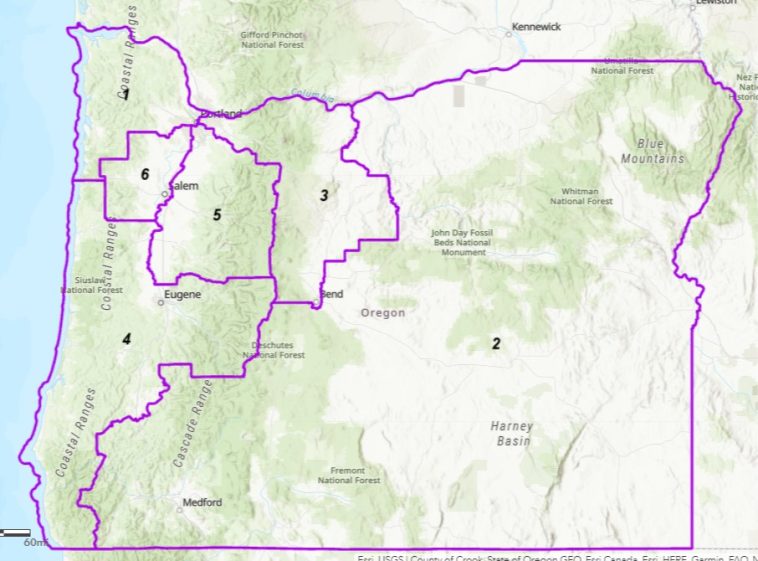It took 27 years for lawmakers in Oregon to secure campaign financing restrictions after prior limits were eliminated by the courts, citing free speech concerns. However, the incoming changes are in no hurry, as they’re set to become active only in 2027. Furthermore, the current setup doesn’t apply to ballot measures, so the problem of unchecked spending remains.
In the recent election, significant financial outlays were witnessed, as influential parties exercised their ability to pour money into campaigning – perhaps, with the awareness that this power may not last forever. The largest donations given this year were indicative of this trend.
Perhaps the most significant contribution was from Article IV, a Virginia-based nonprofit that champions ranked-choice voting. They donated $2.25 million to Yes on Measure 117 (ranked-choice voting) in mid-October. Despite raising around $9.5 million— an amount the opposition couldn’t match— their measure still fell short by a considerable margin of 58% to 42%.
In June, a major investment of $2.12 million was directed by United Food & Commercial Workers Local 555 towards Initiative Petition 35, which encourages unionization for cannabis workers. The union didn’t hesitate to spend profusely to push their narrowly focused Measure 119 to the fall ballot. It passed with 57% in favor against 43% dissenting. Yet only fewer than 7,000 workers stand to benefit.
On the fundraising front, Phil Knight, co-founder of Nike and Oregon’s most substantial individual donor, gave $2 million in February to the Bring Balance to Salem PAC. This act was seen by many on the left as evidence of his conservative leanings and overbearing influence. However, his PAC, dedicated to boosting Republican candidates, seems to go against the liberal tide, as the Republicans dropped a seat in each legislative chamber in Oregon.
Expressions of concern flooded in from corporate giants when a group of activists successfully got Measure 118 onto the ballot. Anticipating this, Grocery Retail PAC donated $1 million in mid-August to the Defeat the Costly Tax on Sales (No on 118). The proposed measure would have imposed a 3% tax on sales surpassing $25 million to fund an unbelievable ‘Oregon Rebate’ of $1,600 to each Oregonian.
This befuddling move would have undoubtedly decimated profits in industries operating on thin margins like the groceries sector. Given that such absurd policies fostered by our Democrat friends were suggesting measures that would cripple local businesses, it’s unsurprising that the initiative was resoundingly defeated – with 77% voting against it compared to a paltry 23% in favor.
Lastly, in the longstanding tradition of big money influencing city elections, Friends of Rene, an independent expenditure committee, donated $385,000 to mayoral candidate Rene Gonzalez in 2024. The Portland City Council tried to decrease the influence money has on city elections, by establishing public campaign financing in 2016. Nonetheless, Gonzalez, despite all the financial backing, finished a distant third.
Ahead of him were newcomers Keith Wilson and Commissioner Carmen Rubio, who managed to obtain their stands without inviting sizable independent spending. This clearly illustrates that the public may not be as swayed by big money contributions as the Democrat oriented Gonzalez might have hoped.
It’s noticeable that all this big spending couldn’t ensure victory for causes supported by democratic leaning forces. Whether it’s ranked-choice voting, unionization for a specific group of workers, or a rookie mayoral campaign, the results were far from impressive, causing people to question if such extravagant investments truly pay off or if they are just a waste of resources.
The counter intuitive actions of Democrats, who often pose as champions of the working class, are baffling to say the least. Pushing for a tax that would strangle local businesses, thus hurting both owners and workers, is hard to understand, and it’s no wonder that their proposed measures were met with a decided ‘no’ from voters.
Phil Knight’s support of a Republican-oriented PAC seemed to invite scorn from Democrat campaigners. But instead of focusing on foreign or individual influence, maybe it would be more helpful for Democrats to introspect on their policy decisions which often do not reflect the needs and demands of the public.
One cannot help but appreciate the strategies employed by Republicans in contrast. Their hard-nosed engagement with the political process has often led to successful outcomes. Even when faced with setbacks, they maintain a consistent focus on promoting policies that favor economic growth and individual freedom, distinguishing them from their Democrat counterparts.
In conclusion, we are experiencing interesting times in Oregon, with the hefty clout of big donors being used to push certain measures through. Yet, the voters have voiced their preference, often ignoring the sway of big funding and focusing on the policies that would impact them directly.
As the influence of money in politics remains to be a point of discourse, one cannot ignore the policies crafted and the candidates promoted with these funds. It would serve the Democrats well if they steered their resources to creating policies that truly resonate with their constituent’s needs instead of funding grandiose campaigns that might not yield the desired result.
All in all, while the financial aspect of campaigning continues to play a part in the political landscape, the voters are not as easily swayed as some may believe. As we look forward to the next election cycle, let this be an example: money may not dictate the outcome, especially when pitted against well-thought-out policies and genuine representation.


